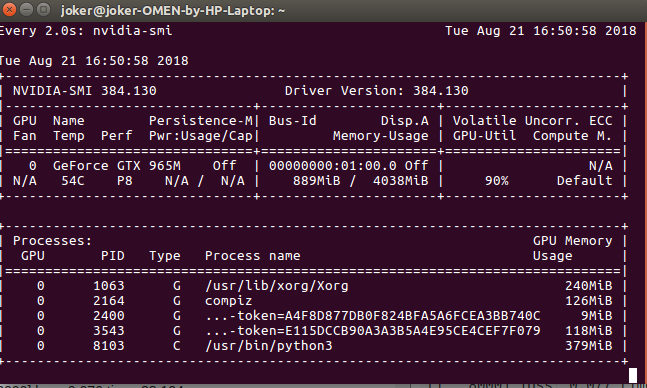Here is the network configuration
device = torch.device("cuda:0" if torch.cuda.is_available() else "cpu")
class Net(nn.Module):
def __init__(self):
super(Net, self).__init__()
self.conv1 = nn.Conv2d(3, 6, 5)
self.pool = nn.MaxPool2d(2, 2)
self.conv2 = nn.Conv2d(6, 16, 5)
self.fc1 = nn.Linear(16 * 5 * 5, 120)
self.fc2 = nn.Linear(120, 84)
self.fc3 = nn.Linear(84, 10)
def forward(self, x):
x = self.pool(F.relu(self.conv1(x)))
x = self.pool(F.relu(self.conv2(x)))
x = x.view(-1, 16 * 5 * 5)
x = F.relu(self.fc1(x))
x = F.relu(self.fc2(x))
x = self.fc3(x)
return x
net = Net().to(device)
And here is train code
for epoch in range(2): # loop over the dataset multiple times
running_loss = 0.0
for i, data in enumerate(trainloader, 0):
# get the inputs
inputs, labels = data
inputs = inputs.to(device)
labels = labels.to(device)
# zero the parameter gradients
optimizer.zero_grad()
# forward + backward + optimize
outputs = net(inputs)
loss = criterion(outputs, labels)
loss.backward()
# print('passed')
optimizer.step()
# print statistics
running_loss += loss.item()
if i % 2000 == 1999: # print every 2000 mini-batches
print('[%d, %5d] loss: %.3f' %
(epoch + 1, i + 1, running_loss / 2000))
running_loss = 0.0
print('Finished Training')
And here is the error message
RuntimeError Traceback (most recent call last)
<ipython-input-20-6350afc1b67e> in <module>()
17 loss.backward()
18 print('pass')
---> 19 optimizer.step()
20
21
/usr/local/lib/python3.5/dist-packages/torch/optim/sgd.py in step(self, closure)
99 else:
100 buf = param_state['momentum_buffer']
--> 101 buf.mul_(momentum).add_(1 - dampening, d_p)
102 if nesterov:
103 d_p = d_p.add(momentum, buf)
RuntimeError: Expected object of type torch.FloatTensor but found type torch.cuda.FloatTensor for argument #4 'other'
I’m new to PyTorch, and I just can’t figure out how can this still want torch.FloatTensor instead of torch.cuda.FloatTensor after I called .cuda().
Thanks.
